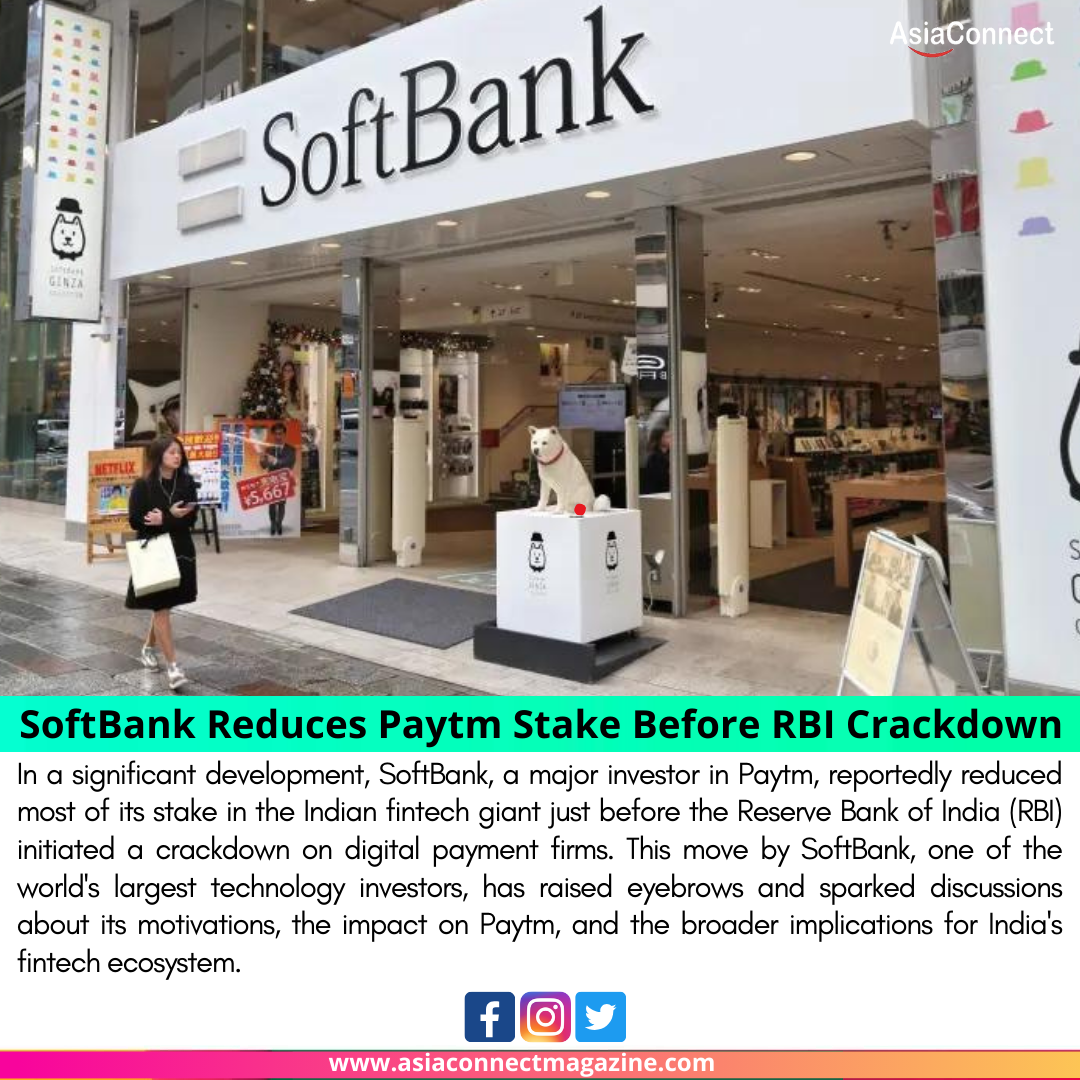In a significant development, SoftBank, a major investor in Paytm, reportedly reduced most of its stake in the Indian fintech giant just before the Reserve Bank of India (RBI) initiated a crackdown on digital payment firms. This move by SoftBank, one of the world’s largest technology investors, has raised eyebrows and sparked discussions about its motivations, the impact on Paytm, and the broader implications for India’s fintech ecosystem.
SoftBank’s decision to reduce its stake in Paytm comes amid increasing regulatory scrutiny and tighter regulations governing digital payment firms in India. The RBI, India’s central bank, has been actively monitoring the activities of fintech companies to ensure compliance with regulations related to data security, customer protection, and anti-money laundering measures. The recent crackdown by the RBI on several digital payment firms, including Paytm, underscores the regulator’s commitment to maintaining stability and integrity in the financial system.
The timing of SoftBank’s divestment from Paytm raises questions about its awareness of the impending regulatory action and its implications for the company’s operations and valuation. While SoftBank has not publicly disclosed the reasons behind its decision, speculation abounds regarding potential concerns over regulatory risks and compliance issues. By reducing its exposure to Paytm before the RBI crackdown, SoftBank may have sought to mitigate its own risks and protect its investment portfolio from regulatory uncertainties.
The divestment by SoftBank could have significant repercussions for Paytm, India’s leading digital payment platform, and its ambitious growth plans. SoftBank’s backing has been instrumental in fueling Paytm’s expansion and innovation efforts, providing the company with access to substantial capital and strategic guidance. However, with SoftBank scaling back its investment, Paytm may face challenges in maintaining its momentum and sustaining its competitive edge in the fiercely competitive fintech landscape.
Moreover, SoftBank’s move highlights the evolving dynamics of investor sentiment towards Indian fintech startups in light of regulatory developments and market conditions. While India’s fintech sector has witnessed explosive growth in recent years, fueled by rising smartphone penetration and digital adoption, concerns about regulatory compliance and risk management have come to the forefront. Investors, both domestic and international, are increasingly cautious about deploying capital in the sector, particularly in light of regulatory uncertainties and the potential for heightened scrutiny.
The divestment by SoftBank also underscores the broader challenges facing India’s fintech ecosystem as it navigates a complex regulatory landscape. While regulatory oversight is essential for safeguarding consumer interests and maintaining financial stability, excessive or ambiguous regulations can stifle innovation and impede the growth of fintech startups. As such, there is a delicate balance that policymakers and regulators must strike between promoting innovation and ensuring regulatory compliance in the fintech sector.
In response to the RBI crackdown and SoftBank’s divestment, Paytm and other digital payment firms are likely to intensify their efforts to enhance compliance measures, strengthen risk management frameworks, and foster greater transparency in their operations. Building trust and credibility with regulators, customers, and investors will be crucial for sustaining long-term growth and resilience in the face of regulatory challenges.
In conclusion, SoftBank’s decision to reduce its stake in Paytm before the RBI crackdown on digital payment firms highlights the complexities and uncertainties inherent in India’s fintech landscape. While the divestment may have been driven by concerns over regulatory risks, its implications extend beyond Paytm to the broader fintech ecosystem and investor sentiment. Moving forward, regulatory clarity, proactive compliance efforts, and strategic partnerships will be key drivers of success for fintech startups seeking to navigate regulatory challenges and capitalize on India’s digital transformation journey.





